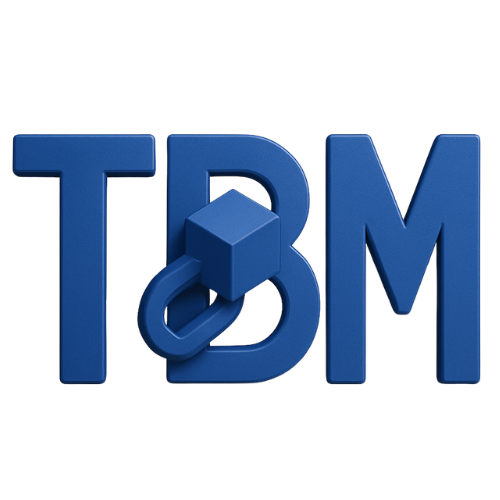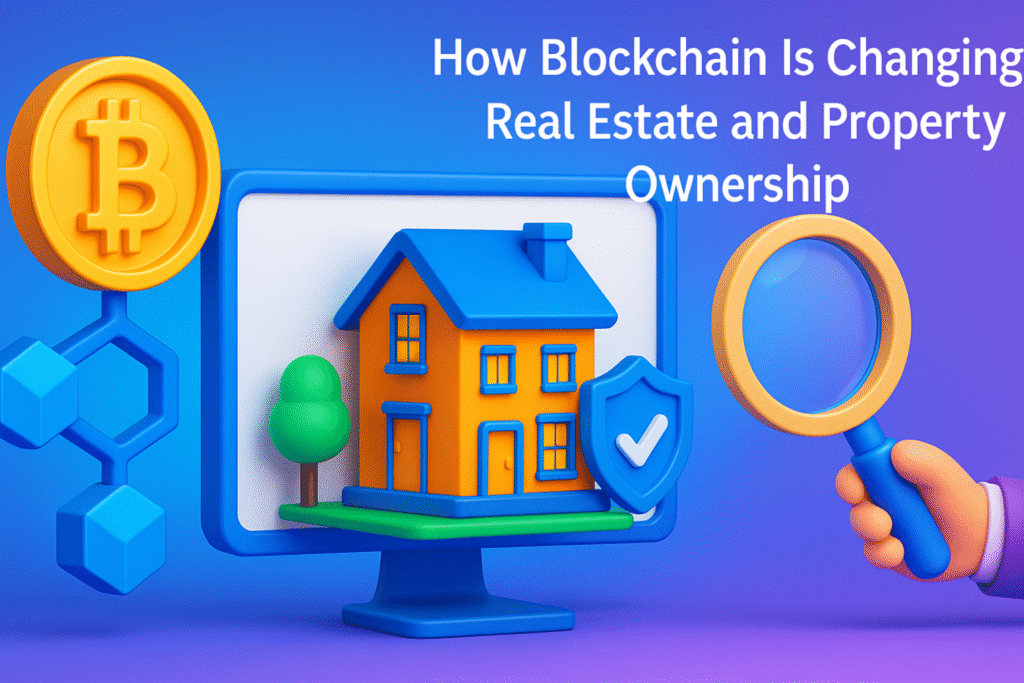Discover how blockchain technology is revolutionizing real estate through smart contracts, tokenization, digital land registries, and secure global ownership.
1. How Blockchain Is Changing Real Estate and Property Ownership
The real estate industry, traditionally viewed as one of the most paper-heavy and slow-moving sectors, is undergoing a digital revolution—thanks to blockchain technology. While blockchain initially gained attention through cryptocurrencies like Bitcoin, its potential to disrupt and enhance real estate is now undeniable. From reducing bureaucracy to enabling fractional ownership and global transactions, blockchain is rewriting the rules of how we buy, sell, and manage property.
2. Smart Contracts: The Automation Engine Behind Real Estate Transactions
One of the most transformative features of block.chain in real estate is the use of smart contracts. In essence, smart contracts are programmable agreements that execute themselves automatically when specific conditions are met. Imagine a real estate deal where, instead of waiting weeks for escrow, title verifications, and third-party clearances, everything from document verification to fund transfers happens instantly and without human intervention. That’s the power of smart contracts.
Example:
If you’re buying an apartment, once the agreed-upon conditions (such as proof of funds and inspection clearance) are confirmed on the block.chain, the smart contract can automatically trigger the title transfer and release payment to the seller—no lawyer, no escrow delay, no confusion. Not only does this reduce costs by eliminating middlemen like escrow agents and brokers, but it also significantly cuts down on processing time and human error.
Real-world implementations are already taking shape. In the UK, platforms like Coadjute are integrating block.chain into property transactions, allowing all parties—agents, banks, and buyers—to collaborate in real-time with complete transparency and security.
3. Property Tokenization: Making Real Estate Accessible for All
Tokenization is another groundbreaking innovation that block.chain brings to real estate. This process involves converting the value of a physical property into digital tokens, which are then stored and traded on a blockchain network. Each token represents a fraction of the property’s ownership.
Traditionally, investing in real estate required significant capital and came with high entry barriers. But tokenization changes that. Now, anyone with a few dollars can invest in a share of a commercial building or luxury apartment, gaining exposure to real estate appreciation and rental income without owning the entire property.
This is particularly game-changing in the commercial real estate market. Platforms around the world are beginning to offer fractional ownership models, allowing investors to purchase tokens that represent shares in high-value buildings. In Saudi Arabia, Rafal Real Estate recently launched a project where citizens can invest in property for as little as one riyal. In Europe, companies like BrickMark have tokenized real estate worth over $100 million, allowing easy trade of property shares much like stocks.
This democratization of property ownership opens doors for small investors, diversifies portfolios, and increases liquidity in an otherwise rigid market.
4. Blockchain-Based Land Registries: Reinventing Trust in Property Titles
One of the most outdated and fragile elements of the global real estate ecosystem is land registration. Many countries still rely on paper-based records, which are susceptible to fraud, damage, and manipulation. Even digital records, when not properly secured, can be altered or erased.
Block.chain’s immutable ledger offers a secure and permanent solution. Once a property title is recorded on the block.chain, it cannot be altered without consensus across the network. This creates a tamper-proof system where ownership is indisputable and easily verifiable by anyone, including buyers, governments, and financial institutions.
Several countries have already started pilot programs to integrate block.chain into their land registries. Sweden and Georgia are leading the way, with block.chain-backed title systems that ensure faster, fraud-resistant property transfers. The transparency also builds trust in international transactions, where concerns over ownership authenticity often stall deals.
5. Global Transactions and Cross-Border Investment Simplified
Traditionally, buying property across borders has been fraught with complexities. Legal documentation, local regulations, currency conversions, and trust issues often deter international investors. But block.chain is bridging that gap.
With tokenized assets, cross-border property investment becomes as simple as sending an email. An investor from India can buy a share in a New York office building through blockchain platforms, without needing to fly overseas, navigate foreign legal systems, or open local bank accounts. Transactions are transparent, fast, and governed by smart contracts that enforce every condition automatically.
This decentralization of real estate is expected to significantly boost foreign direct investment in emerging markets, empowering individuals across the globe to diversify their portfolios beyond traditional borders.
6. Smart Property Management and Rental Agreements
Block.chain’s impact isn’t limited to buying and selling—it extends into property management too. Landlords can create smart rental contracts that automate rent payments, late fees, renewals, and even maintenance requests. For tenants, this means a transparent, hassle-free experience where terms are clearly coded and enforced.
Identity verification, lease validation, and rent tracking—all can be managed on a single block.chain platform. The transparency of block.chain also helps resolve disputes faster, as all transactions are logged and cannot be manipulated after the fact.
As property management becomes more digitized, landlords and real estate managers can enjoy reduced administrative workload and increased operational efficiency.
7. Challenges on the Path to Adoption
While the promise of block.chain in real estate is enormous, several challenges remain. Regulatory uncertainty is one of the biggest hurdles. Most countries still don’t recognize block.chain-based property titles as legally binding, and rules vary significantly across jurisdictions.
Energy consumption, especially from older proof-of-work block.chains, is another concern, though many platforms are shifting to eco-friendly proof-of-stake systems. Moreover, there’s a need for standardization. For block.chain to truly transform global real estate, governments, financial institutions, and tech providers must agree on common frameworks for token issuance, KYC/AML compliance, and transaction governance.
8.The Future of Real Estate: Smart, Decentralized, and Borderless
Looking ahead, the integration of block.chain into real estate is set to accelerate. As decentralized finance (DeFi) gains momentum, we may soon see mortgages and loans issued without banks, collateralized by tokenized property assets. Artificial intelligence could team up with smart contracts to analyze property data and make investment decisions in real-time. Even virtual real estate in the metaverse—such as digital plots in Decentraland or The Sandbox—is being bought and sold as NFTs backed by block.chain verification.
Conclusion
A Visionary Evolution, the document explores the profound impact of block.chain technology on the real estate sector. With the rise of property tokenization and smart contracts, coupled with the digitization of real estate entities, decentralized property ownership is becoming a prevalent trend. Moreover, the utilization of blockchain in land registries and the overall real estate industry is driving significant advancements towards a future characterized by enhanced efficiency, transparency, and accessibility. Furthermore, the integration of AI with blockchain technology could streamline property transactions and enhance decision-making processes. The synergy between AI algorithms and smart contracts has the potential to revolutionize real estate investments. As the digital landscape evolves, the concept of virtual property ownership is gaining momentum. Digital assets in virtual worlds like Decentraland and The Sandbox are reshaping traditional notions of property ownership. The document underscores the transformative power of blockchain in digitizing real estate assets and redefining ownership structures.
Do not forget to leave a review
#BlockchainRealEstate, #Web3Property, #Proptech, #DigitalOwnership, #TokenizedRealEstate

